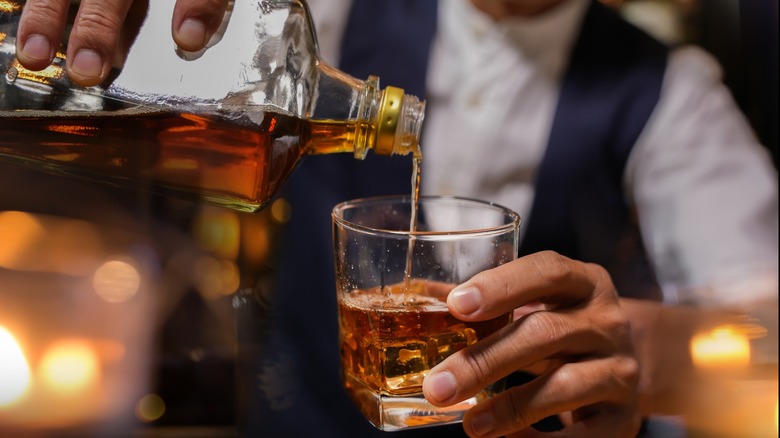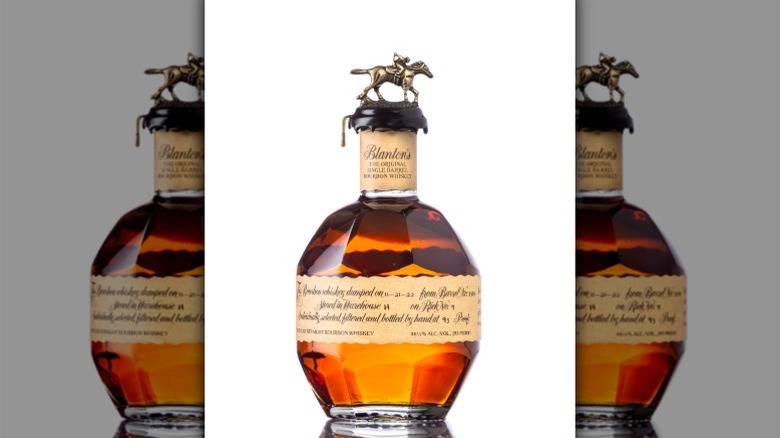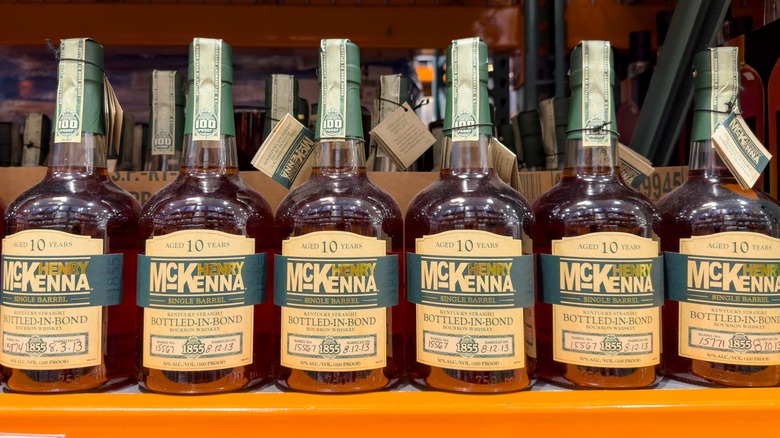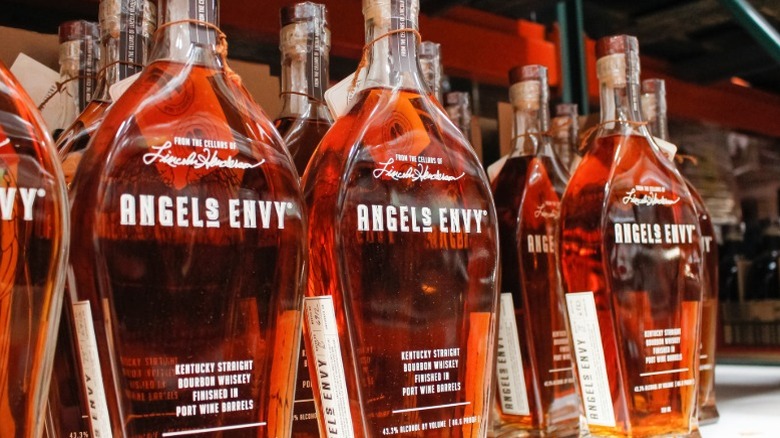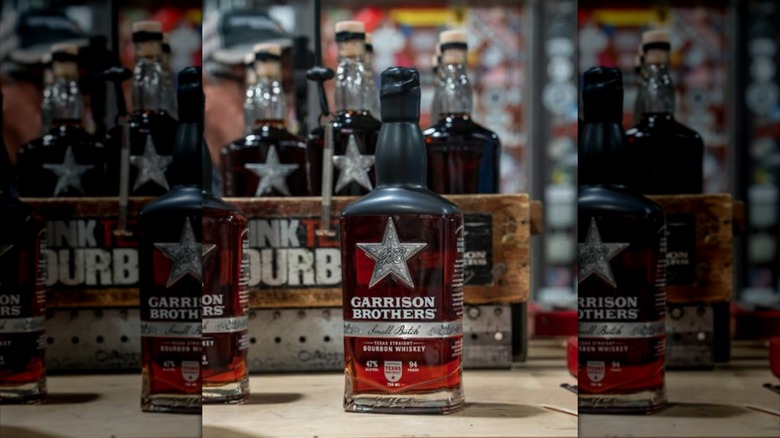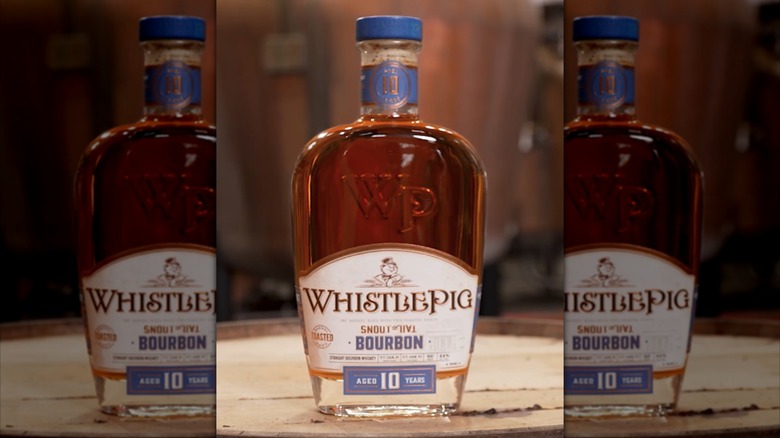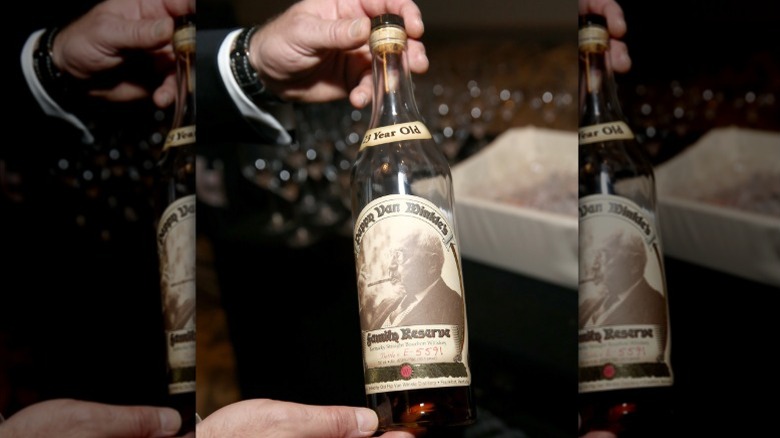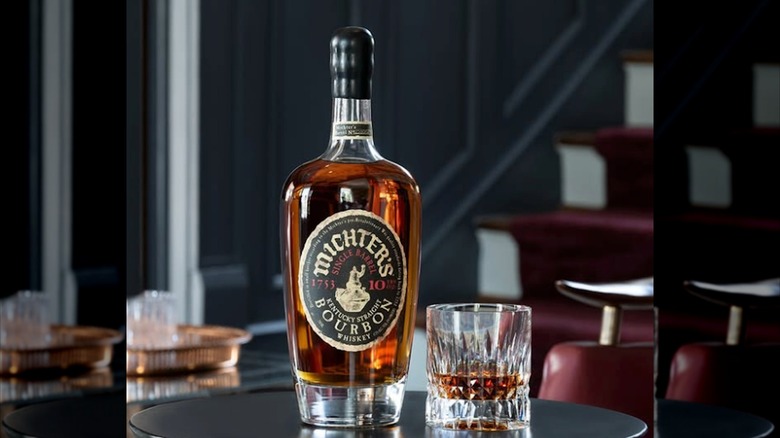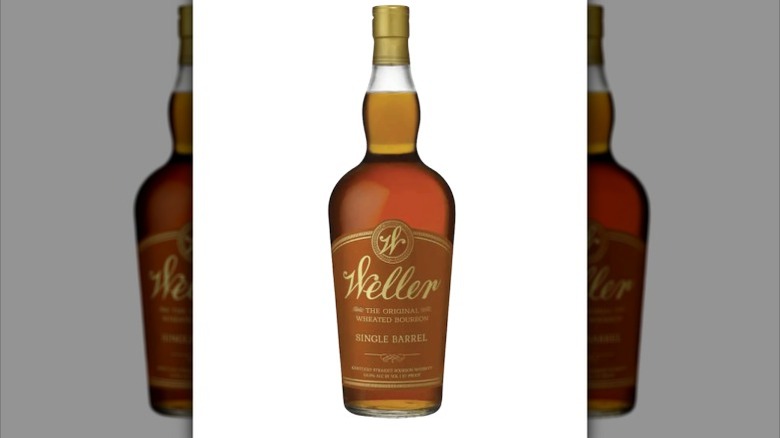8 Bourbons That Aren't Worth The Price
Whether you're just getting into whiskey or are a big-time bottle collector, there's no denying that bourbon is one of the hottest categories in the spirit world. In 2024, the segment was projected to grow year-on-year once again to $8.29 billion from $7.79 billion. However, by its very definition, bourbon takes time to make — and with the sustained surge in popularity it's experienced for more than a decade, demand has outpaced supply. The result? Once affordable bottles are now stuck with some eye-watering price tags.
As a spirits expert, tasting note writer, and bar owner, I've been incredibly fortunate to try some of the most coveted bottles on the market. In recent years, I've watched as some of my favorite go-to bourbons have become scarce as allocations make them impossible to find — and this forces many collectors to wade into the absurdly expensive secondary market to get a hold of what they want. In all honesty, there's no amount of hype that can take away from how delicious the liquid in these bottles is — and the fact that market forces have made many of them too pricey doesn't mean I wouldn't happily sip every single one of these when given the opportunity (hopefully on someone else's dime or split among a group of friends). But given the current state of things, these are the bourbons I would say aren't worth emptying your bank account just to try them.
Blanton's Single Barrel
It was barely a decade ago when I would make it a point to grab a bottle of Blanton's whenever I was picking up a housewarming gift for a friend or getting supplies together for a group house rental on vacation. After all, there's plenty to love about the flavor of this bourbon, which has rich honey-vanilla notes and a smooth, well-rounded mid-palate that seems to speak to the masses without sacrificing an edge of complexity. But unfortunately, the once premium-entry-level spirit has become something of a trope (and sometimes a trope is a red flag to ignore) when it comes to the coveted bourbon world (where even the brass horse toppers on each bottle have become a desired collector's item).
What used to cost $45 to $55 (and was readily available) carries a $75 MSRP today, according to BoozApp — and that's if you can even find it on the shelf at that price. Otherwise, you could end up spending $135 or more on the secondary market for the exact same spirit that used to cost roughly a third as much. After revisiting it at an industry tasting (the only place I've seen an open bottle being poured in years), I had expected to find another layer of intrigue in its flavor profile, but was left only with regret that I could no longer justify picking up a bottle of this for casual enjoyment without reconfiguring my budget. At the very least, the brand's new position does make for some entertaining memes.
Henry McKenna 10 Year Single Barrel Bourbon
Coming across a well-made aged bourbon can be a huge step in someone's whiskey journey. In my experience, that can make the 10-year release window a prime opportunity for getting a great product while still staying within a budget. For a while, a growing legion of fans decided this Henry McKenna bottle (which is part of the Heaven Hill Distillery family) was one of these options. Not only did its average price actually drop from the $70 range to around $50 for a bit, but you could find it on shelves despite its relatively broad appeal.
However, it might not be as much of a home bar cart shoo-in as you'd expect as of late. Tighter allocation (and ironically, its reputation as an affordable and easy-to-find bottle) has shot up the price even at the retail level to $70 or more. While it may not break the bank like other sought-after spirits, customers have begun to turn on the product, saying it's not the sipping bourbon they'd expect at that price point. And while some claim it's a standout as a mixing base in cocktails, there's hardly a reason to truly splurge when it's coming in as an ingredient. If you're looking for a memorably good replacement, there are other options (like the Russell's Reserve 10-Year, which is reliably available and incredible value at around $40) that can save you some money.
Angel's Envy Private Selection Single Barrel Port Finish
While you could argue that bourbon finishes are in one of the more divisive corners of the whiskey community, you still can't deny they have a following. For those who are fans, Angel's Envy arguably stands out as one of the more established brands when it comes to incorporating different barrel styles to impart unique flavors. And while it shouldn't come as a surprise that this added step tends to also lift the price tag, it's a bit egregious when it comes to this version finished in port barrels.
To be clear, there are customers who gush over this product's flavor profile, citing its rich caramel-kissed dark fruit flavors and medium-full bodied mouthfeel. However, the whiskey community at large remains divided over the cost, with some claiming that even the special barrel finish doesn't constitute the roughly $100 MSRP. Still, you'd be the envy of everyone if you actually paid that, as secondary prices for this bottle start at least $50 higher — or more. In a recent search, the bottle was for sale in the New York City area for $290, or nearly triple the going shelf rate.
Garrison Brothers Small Batch Bourbon
As a premium small-batch whiskey brand, shoppers might expect to pay a bit more for Garrison Brothers. The most basic offerings from the Texas-based distillery start off at $80, including bottles of its flagship Small Batch bourbon. The relatively easy to locate bottles also don't seem to have fallen any victim to price gouging or secondary market inflation (which might be explained by the fact that some purists aren't willing to spend on what's not coming out of Bourbon County).
However, even the distillery's entry-level price tag might be set a little too high for what you're getting. While whiskey drinkers are no stranger to adding water to their whiskey to allow higher ABV spirits to open up and expose their flavors, the heat on this young bourbon punches through some of the apple and honey flavors that shine through the early part of the palate. Customers also say this boozy heat amplifies some of the young, grainy wood characteristics that almost make it come across as underaged. And are you really willing to spend $80 on a whiskey if you're only going to make Old Fashioneds with it? If you want a higher-proof pour without as much sticker shock, Wild Turkey 101 8-Year-Old Bourbon can be a perfect stand-in for just about half the cost.
Whistle Pig 10 Year Aged Snout to Tail Bourbon
Whistle Pig is another brand that has always sat a little higher on the price range. For the most part, their whiskies range from "stylistically sound" at the very worst to downright impressive at their very best. Bottles like their deliciously spicy 6-Year PiggyBack Rye even stand out as an especially solid deal at $50.
But it's a little different when it comes to their entry-level bourbon. Even though most customers will likely be able to score a bottle for around $75 to $80 (slightly below the $90 MSRP), you might not find much to savor in your pour. Yes, it's soft, well-rounded whiskey with hints of caramel dappled through the mid-palate — but it lacks the complexities you might expect from a 10-year-old bourbon with a relatively hefty price tag. One bar industry colleague I polled about this bottle said they had begun swapping in a bottle of Eagle Rare 10-Year (a bartender favorite in and of itself) after sampling them side by side in a blind tasting. The best part? It'll only cost you about $45 to $55.
Pappy Van Winkle 23 Year
Be honest: There's a good chance you're scanning this list specifically looking for this name. Simply put, no bourbon on the market is quite as hyped as the Pappy Van Winkle lineup. But while the spirits are expertly crafted and certainly delicious, they have also become the poster child of overpriced and impossible-to-source spirits. Asking any bourbon fan if they plan on scoring themselves a bottle is as likely to elicit an incredulous chuckle as it is a scoffing side-eyed glance.
So, how much do people fork over for a chance to drink this holiest of holies? Thanks to the secondary market, their top-end 23-year tend to go for more than 10 times their MSRP at a whopping $4,600 (again, if you can even find it!), for a single bottle, if not higher. In the few occasions I've been lucky enough to try it for myself, my tasting companions (including some who had the budget for this kind of bottle), all roundly agreed that while its a remarkably complex whiskey, it's not worth overpaying for the hype tax. Instead of opting for super-aged bourbons that tend to be heavier on the oak, consider spending your money on slightly younger whiskey like the Elijah Craig 18-year. Not only is it possible to find on the shelves, but you can get a bottle for around $200 to $300.
Michter's 10 Year Single Barrel
In this writer's humble opinion, the Michter's lineup represents some of the best value in bourbon. Many (if not all) of their core products are some of the most notably complex yet approachable-priced whiskies in their categories, from the Straight Rye to the American Whiskey — both of which retail for around $45. Things don't change much quality-wise when you bring the distillery's annual limited run of its 10-Year Single Barrel Bourbon, boasting a delectably complex palate with hints of baking spice, ripe red stone fruit, and a soft, rounded oakiness on the finish that begs for another sip.
Given the quality, I would go so far as to argue that this bottle is worthy of its $200 MSRP. But as you might expect, the actual going rate for this bourbon is much higher than you can justify if you're lucky enough to find it in the wild. In many cases, you'll be lucky to find it for less than twice its expected retail value, with some secondary market prices going even higher toward $500. Instead of doubling down, consider dipping back into the distillery's hits, including its US1 Bourbon that retails for just about $40.
Weller Single Barrel Bourbon
The Weller brand is nothing short of a household name in the bourbon world. As one of the many products made at the Buffalo Trace Distillery in Kentucky (along with the aforementioned Pappy Van Winkle and Blanton's), it's enjoyed a considerable boost in notoriety, too. But unfortunately — and at the risk of sounding repetitive — the brand's meteoric rise in recognition has made what was once an easy-to-find and approachable-priced product much more difficult to source without dropping some serious cash.
Arguably, it's the Weller Single Barrel Bourbon that stands out among its siblings as a particularly tough sell. While most releases have a decently complex flavor profile (albeit slightly on the drier, lighter-medium bodied side), most of the whiskey community can't seem to understand why the product exists in the first place, given its nondescript place in the lineup. Then comes the issue of how much you'll pay for it: With a charming suggested selling price of $50, most bottles actually fetch closer to $650 on the secondary market. If you're intrigued by the brand, get yourself the company's special reserve for just $40, or go all out and splurge on the 12-year for about $160.
